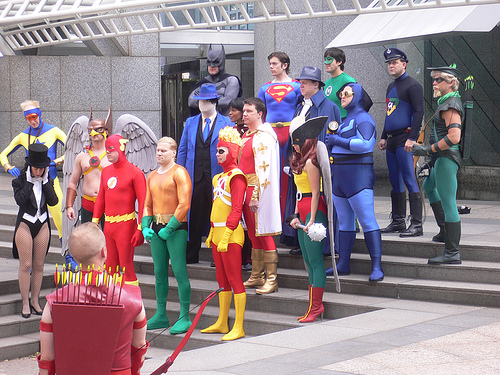Remember a bunch of horrible phone scams to fast food
restaurants? The caller posed as a police officer and induced managers to strip
search young female employees by saying the young women have stolen from
customers? (If not, you can read about it
here.)
A docudrama film,
Compliance, has been made
of the worst incident, in which a young employee was detained, strip searched,
and perform sexual acts. The story is a true one, and a disturbing one, and the
film is similarly disturbing. Disturbing enough that at a screening that I
attended yesterday, some people walked out. (This has been true in other cities
as well.)
In the nutshell, the police officer ratchets up his requests
of the restaurant manager; in turn she is swamped at work and with the approval
of the caller (who is posing as a police officer) delegates to others the task
of “watching over” the young employee who the police officer has said has
stolen money. It starts out having her empty her pockets, then search her
pocket, then disrobe to have her clothes searched. It goes on from there. The
process resembles that of the participant in Stanley Milgram’s famous obedience
study, in which participants were asked to give increasingly larger shocks to
another person (unbeknownst to the participants, no actual shocks were
administered. Click
here for more
information about the Milgram experiment.)
Given this incident really happened (in other locales as
well—this wasn’t the only place the perpetrator called), how could this happen?
We hear about this case, shake our heads and say that if we were the manager, we wouldn’t do anything like that. We’d
know enough to say “no.” But would we?
There are several factors that explain how this could
happen:
- ·
At least in the film, the manager was portrayed
as clearly identifying with “authority”—the (supposed) police officer. The
caller played this up, explicitly joking that she was his eyes on the ground.
She was more focused on being a good “assistant” to him, rather than a good,
thoughtful person viz her employee.
(When the manager’s boyfriend was enlisted to watch the young employee, the
manager very much wanted her boyfriend also to be a good assistant to the
caller.)
- ·
The restaurant was very busy that night, and the
store was already short-staffed, and earlier in the day had a problem with food
refrigeration and so were running out of some foods. The manager was very
stressed, and had a heavy “cognitive load”—had many things she was juggling in
her head. This would make her likely pay less attention to challenging the
police officer or thinking critically about what he was asking her to do.
- ·
The young employee did not overtly “fight back”
(though she did ask to be allowed to leave the room in which she was being
detained); it seems clear in the film that she was experiencing some degree of
learned helplessness—a situation in which no matter what she did, she couldn’t “escape”
from the situation. At the start of her detainment, she had been told that if
she cooperated with the strip search it would all be over soon. But it wasn’t over
then, and it just kept getting more intense and outrageous. At some point, she
likely felt that no matter what she did or how much she protested, it wouldn’t
make a difference.
I won’t give too much more away, but if you have the stomach
for an intense film with no happy ending, I suggest you see it.
Copyright 2012 by Robin S. Rosenberg
Suggested Reading:
Richer, S. D., Haslam, A.,
& Smith, J. R. (2012). Working Toward the Experimenter: Reconceptualizing Obedience
Within the Milgram Paradigm as Identification-Based Followership. Perspectives on Psychological Science, 3, 315.




